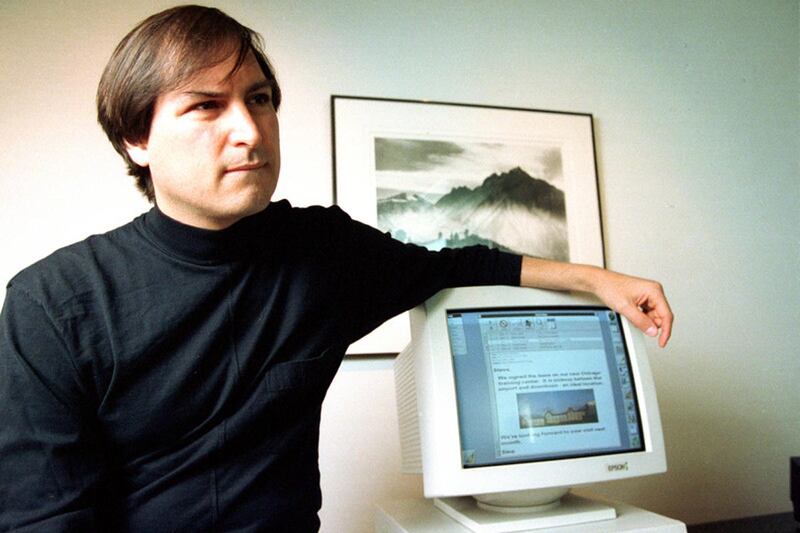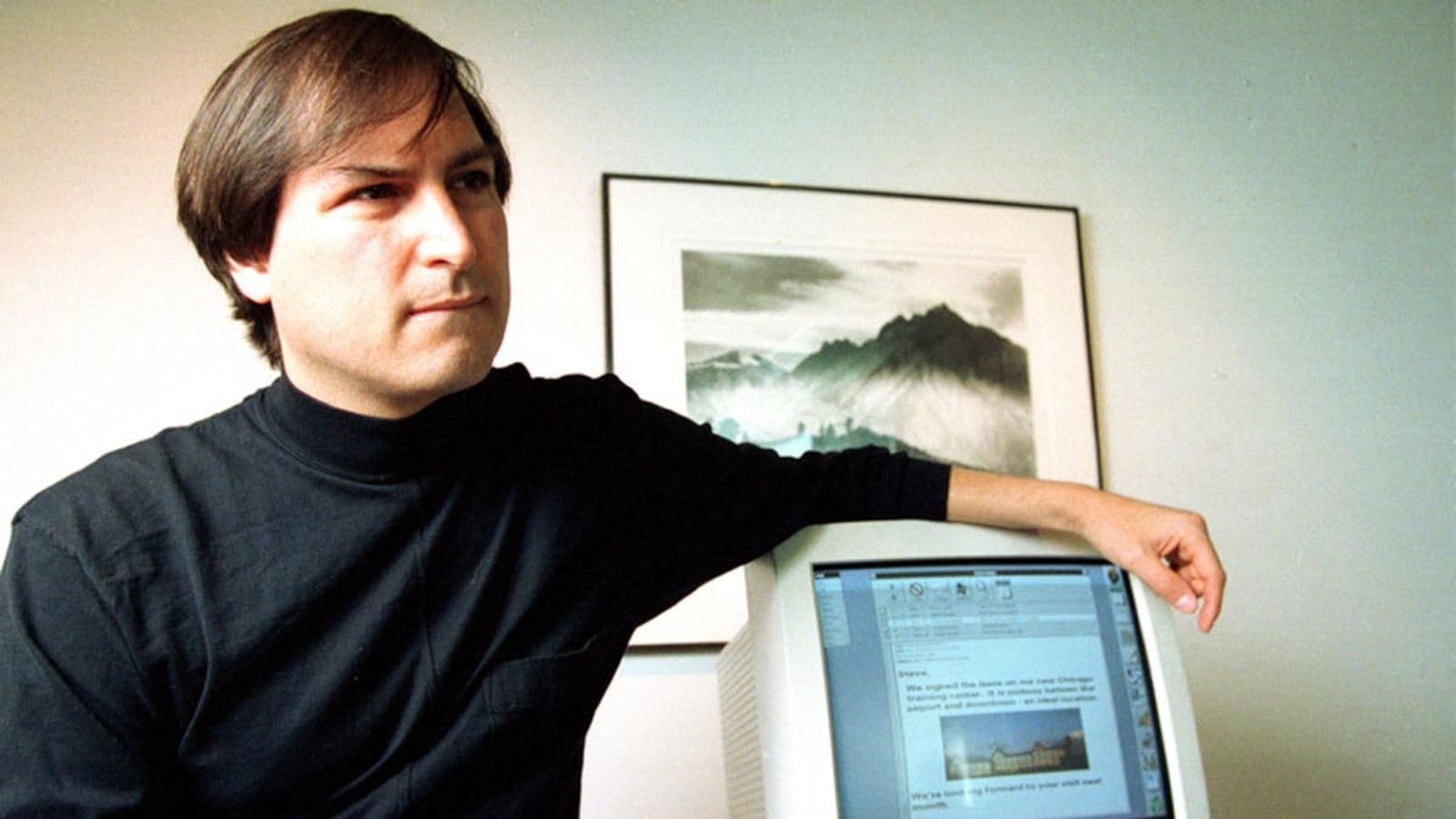Steve Jobs has rightly been lauded over the past day and a half as a visionary who transformed consumer technology over the past 30 years. And Apple has been extolled as a company that embodies the vision of Steve Jobs and is uniquely poised to maintain his legacy, not simply because of the expertise and experience of CEO Tim Cook but because of the stunning loyalty of tens of millions of customers around the globe and a corporate balance sheet flush with tens of billions of dollars in cash and an enviable product pipeline.
There is little reason to argue with these assessments, but they do tend to miss one crucial fact: it’s not that Apple after Jobs appears poised to continue his legacy; it’s that Apple after Jobs must continue his legacy or fail.
The nature of Apple’s business—computer hardware, tablets and smartphones—is not evergreen. There is no core product that will simply generate cash flow year in and year out regardless of how well the company maintains a culture of innovation. Microsoft has Windows, and no matter how much that behemoth faltered an innovation engine in the last years of Bill Gates as CEO or under his successor, Steve Ballmer, the company remains hugely profitable because the ecosystem of personal computers demands an operating system and that system is predominantly Windows.
Or take Google, which only went public in 2004 and yet feels like a grand old man of Silicon Valley. It too has yet to find a franchise that generates the income of search ads, and while in its short history it has championed the most viable smart phone alternative to the iPhone in the Android system, its profitable and viability are still dependent on the vast profit engine that search ads represent.
Apple has none of those luxuries. It does not control some vital aspect of the technology and retail universe. It doesn’t even have the advantages of an Amazon, which makes hardly anything and sells almost everything. It doesn’t have the advantages of Qualcomm, which could fizzle entirely in its attempts to generate new communications technology and yet still reap billions from its existing patents for wireless communication. Apple has a base of users who are fiercely loyal, but even there, fierce loyalty in the Internet Age is a matter of months, not years and certainly not decades. My Space had fierce loyalty too, and then, suddenly, it didn’t.

Apple, in short, makes nothing that it can safely assume people will want two years from now. It can only survive by continually and brilliantly cultivating its base, expanding throughout the world, and routinely unveiling new devices like the iPad, along with subsequent generations of old devices like the iPhone that excite and entice. There are no laurels to rest on, and no boring but steady annuity of cash that ballasts Microsoft and will for years to come.
Though the comparison would shock Apple’s legion of supporters, as a company it shares far more with Nokia and Research in Motion than is comfortable to acknowledge. Five years ago, both of those were lauded as innovative, creative, extraordinary companies. Nokia commanded more than a third of the global market for cellphones in 2005, with Motorola the number two. Nokia was extolled as a Finnish miracle with a uniquely successful culture of design and innovation, consisting of decentralized R&D, teams around the world, and an ever-expanding array of models and product lines. By 2009, its market share was up to 40 percent. In less than two years, that has plummeted below 30 percent, and is eroding rapidly.
And then there is Blackberry, which was considered by most throughout the first decade of the 21st century to have a lock on the business market for smartphones. Its email technology and the ability to encrypt it were considered essential to corporate IT departments, and Apple’s iPhone wasn’t even seen as a competitor, the assumption being that Apple would appeal to individuals and creative types, while Blackberry would dominate the business markets for years to come. Yet, within the past 18 months, Blackberry’s business has nearly imploded, its stock has cratered, its ability to introduce new models in a timely manner has come into question, and prospects for a turnaround seem remote.
That is the landscape for Apple, and surely the successors of Steve Jobs recognize that as well as any. Or at least they should, if they are not to follow the path to obsolescence. The real danger for Apple is complacency born of universal respect and admiration, and the confidence that it can carry on the legacy of a legendary founder. “Stay hungry and stay foolish,” that was a Steve Jobs mantra. It conveyed a quirky sense of urgency. For a company the size of Apple, with a global network of stores and interconnected products that galvanize popular passions like no other, staying hungry is an almost insurmountable challenge.
The instinct will be to preserve the franchise and expand it, but the only way a consumer franchise like Apple can be preserved is if it remains revolutionary, not evolutionary. The speed at which consumer needs and desires move is breathtaking, and Apple’s most die-hard customers could only carry an ailing franchise for so long—as they did in the mid-1990s until Jobs returned to save the company from certain bankruptcy. He was a magician in many ways, but he is not Lazarus, and that option no longer exists.
Betting against Apple now would be foolish, but what is so exhilarating and disconcerting about these particular industries is that in two or three years, it could begin to implode. Think of that: the largest company in the world could, because of the nature of its business and industry, begins to evaporate if it cannot innovate and create successfully, not over the coming decade but within the next 24 to 36 months.
That fact makes what Jobs accomplished all the more remarkable, and it makes the task for his successors all the more difficult. His legacy will not be enough; Apple will have to reinvent itself, just as it has continually done for the past decade. If it doesn’t, there are tablets and phones and devices yet to be imagined that will be imagined by someone else somewhere else, and those will then seize popular imagination, and then we will be writing the corporate obituary of Apple sooner than most imagine. Jobs understood that; we will see if the company he leaves behind does as well.






